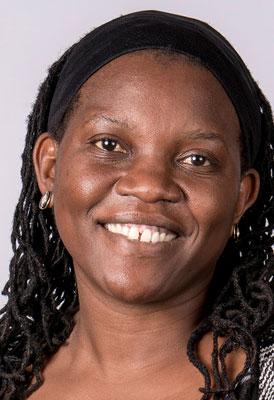
As we start 2022, it is important for all of us to appreciate the need to save for a rainy day
COMMENT | Lydia Mirembe | If the Covid-19 pandemic has taught us any lesson, it is our inability to predict the future with certainty. But while we may not know what’s lurking around the corner, we can make efforts to prepare a fallback position – at least to withstand the first gushes of wind, when a rainy day comes.
When Covid-19 was declared a pandemic in March 2020, followed by successive lockdowns, many people were completely thrown off balance. People lost loved ones and livelihoods; the economy took quite a pounding. Those who had any savings quickly reached for their piggy-banks. There were heightened calls for government to allow NSSF members access part of their retirement savings. The first wave passed.
Just as we were regaining hope and the economy was starting to recover, another wave blew over in June 2021 and we went down again. Before we knew it, the Omicron variant was upon us – and we don’t know how much havoc it will wreak.
How long Covid-19 will stay or how many of its waves will hit us, no body can say with certainty. What we are sure of is that while the pandemic rages on, we continue to face the daily pressures of life while at the same time inching closer to old age.
Why talk of daily pressing needs and retirement age in the same sentence?
As we witnessed at the height of the pandemic, the need to cover costs of day-to-day needs like food, shelter, medical care…can easily force us to lose sight of the looming old-age and its unique challenges. The temptation to raid our retirement savings account is almost irresistible.
While the pressure is undeniable, there is need to appreciate that retirement saving is different from emergency saving. Retirement saving is long-term and aims to cover us when we are no longer able to participate in gainful employment – owing to advanced age or any other reasons that may force one to leave work. It is therefore important to create other saving plans to cover unforeseen developments such as those presented by Covid-19. One needs an emergency saving plan.
To appreciate what emergency saving really means, look back at the outbreak of Covid-19 in 2020. A few days into the lockdown and people were desperately looking around for money to cover their living costs. If a three-month total lockdown was announced today, would you have enough savings to cover all your needs for the duration? If you got an unexpected expense such as a medical bill, or a major repair to your only shelter…would you be able to pay for it?
Setting some money aside helps you to handle unexpected bills or major changes in your life such as a job loss or a drop in income. The money you save for emergencies can help you as you look for a new job or as you look for additional sources of income. It may also save you from falling into debt. Above all, an emergency fund will ensure that your retirement savings remains intact.
As we start 2022, it is important for all of us to appreciate the need to save for a rainy day. You don’t need to put too much money aside all in one go; you can start with the little you have and be consistent.
Financial experts recommend that your emergency savings should be enough to sustain you for at least three months without your regular income – and that should be your goal. For emergency saving, avoid investing in assets that cannot be easily liquidated when you need cash.
Above all, remember that each day that passes, you inch closer to retirement age, which has its own challenges in store.
To ensure the security of your retirement savings, the Uganda Retirement Benefits Regulatory Authority (URBRA) ensures that savers’ funds are, prudently invested and managed to ensure a good return for all. Therefore, don’t be tempted to use your retirement savings to cover emergencies. This new year, aim to separate retirement savings from emergency savings.
Happy New Year!
*****
 Lydia Mirembe is the Manager Communication, Uganda Retirement Benefits Regulatory Authority (URBRA)
Lydia Mirembe is the Manager Communication, Uganda Retirement Benefits Regulatory Authority (URBRA)
 The Independent Uganda: You get the Truth we Pay the Price
The Independent Uganda: You get the Truth we Pay the Price




It should be an implementation by the people.